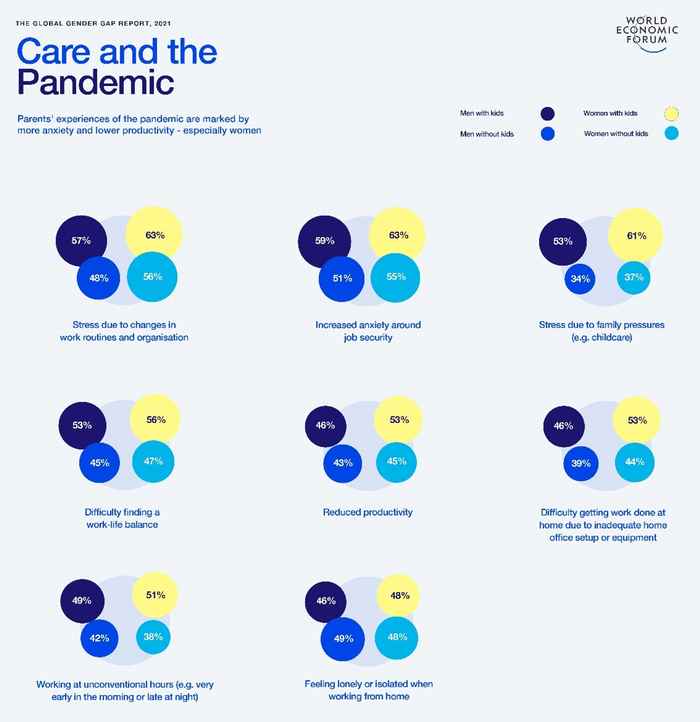Netherlands climbs 7 places in Global Gender Gap Index
Increase in women's participation in the workforce and political empowerment despite COVID-19 pandemic
7 April 2021
This publication provides insight into inequalities between men and women in 153 countries, based on a number of factors including economic participation, access to education, political influence, and life expectancy. The Amsterdam Centre for Business Innovation (ACBI) of the Amsterdam Business School, under the leadership of Scientific Director Henk Volberda, is a partner institute of the WEF and compiled the data for the Netherlands.
136 years before gender gap eliminated
This 15th edition of the report show that inequality between men and women is increasing when viewed in a global context, and COVID-19 has had a more adverse impact on men than women. Worldwide, gender parity is now at 68%. At this rate, it could take up to 136 years before the gap between both genders is eliminated. Relatively more women lose their jobs (5% compared to 3.9% according to the International Labour Organization) because they are overrepresented in sectors that were hardest hit by the pandemic. What’s more, the closure of day care facilities, schools and healthcare institutions for the elderly led to extremely high levels of stress and a drop in productivity for women in particular.

We need to ensure women move up into leadership positions and political rolesProf. Henk Volberda
Not among the leaders yet
The situation in the Netherlands is more positive, with the country climbing 7 places to number 31 in the rankings. COVID-19 did not lead to declining participation of women in the job market and opportunities for women in the Netherlands have in fact improved. The political influence of women has also increased. ‘The substantially improved position in the Global Gender Gap Index demonstrates that equal opportunity policy in the Netherlands is starting to bear fruit. But there are still considerable disparities and we’re not among the leaders yet’, says Volberda. ‘We have qualified and very highly educated women here; we need to do whatever it takes to ensure they move up into leadership and management positions and political roles’.
About the Global Gender Gap Report
Gender inequality impedes economic growth and prevents countries from becoming more competitive. Due to the urgency of closing the gender gap, the WEF publishes an annual report comparing countries and providing insight into the extent of a country’s progress in eliminating gender inequalities by looking at 4 aspects: economic participation and opportunities, access to education, healthcare and life expectancy and political empowerment. The Global Gender Gap Index, with the overall score, is a key component of the report. Scores van vary from 0 (inequality) to 100% (equality).
